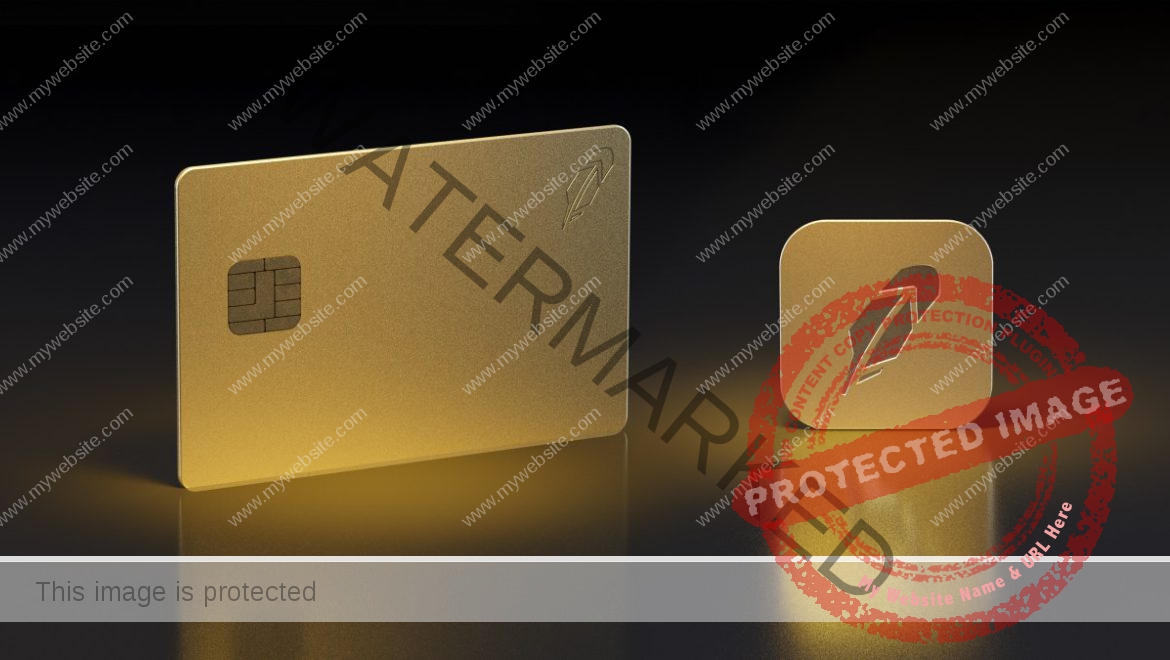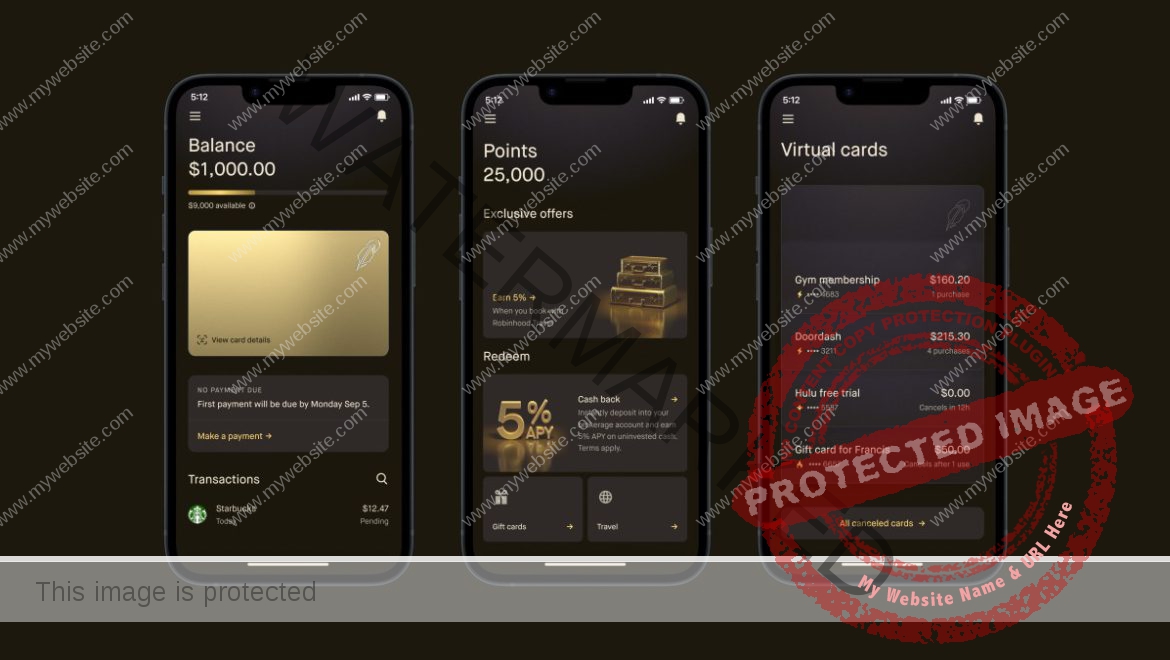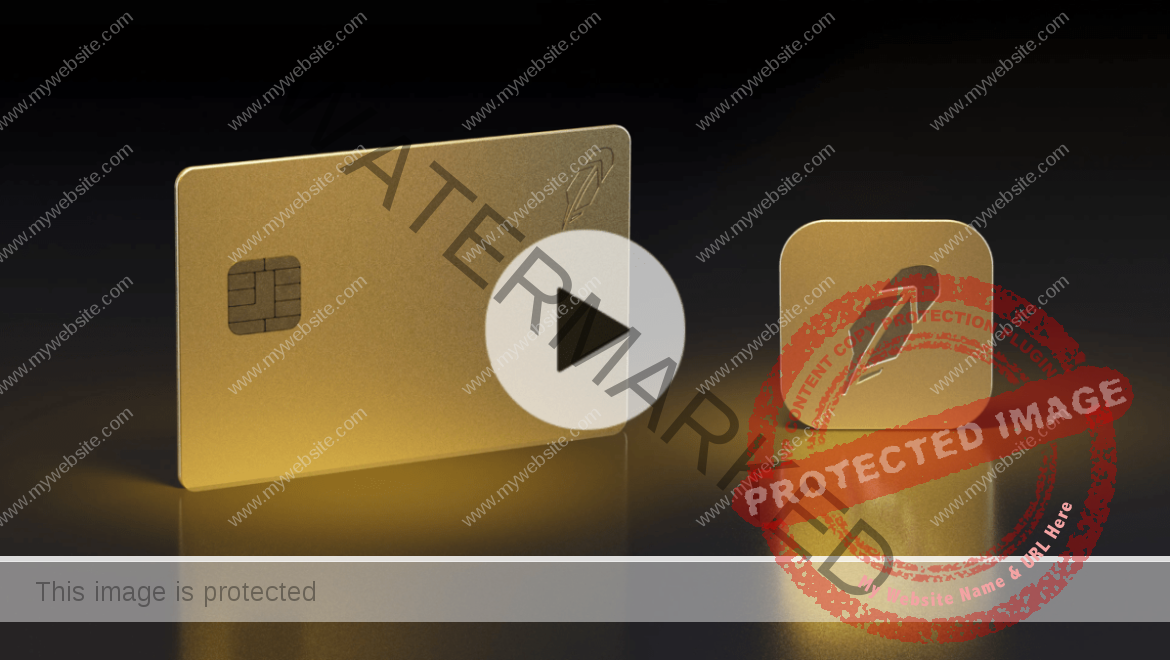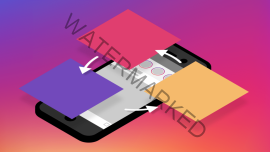Robinhood's new credit card goes after Apple Card with ability to invest cash-back perks | TechCrunch
Eight months after acquiring credit card startup X1 for $95 million, Robinhood announced today the launch of its new Gold Card, with a list of features that could even give Apple Card users envy.
Robinhood, better known for its brokerage app aimed at the everyday investor, is touting all sorts of benefits with its new card in an attempt to attract users. The card has no annual or foreign transaction fees. However, it will only be available for Robinhood Gold members, which costs $5 a month, or $50 annually. (Gold is a program that offers other benefits like 5% APY on an account’s uninvested brokerage cash.)
Gold Card users can earn 3% cash back on all categories, including restaurants and groceries, and 5% cash bank when booking travel at Robinhood’s new travel portal. That cash back can be transferred to brokerage accounts, which can go toward making investments like stock purchases, the company says. The ability to invest using cash back is the big innovation that X1 developed prior to getting acquired.
Another interesting feature of the Gold Card includes the ability to provide cards for family members. This is the first time that Robinhood has introduced a family-oriented financial product, Robinhood Money General Manager Deepak Rao told TechCrunch. Rao was the founder and CEO of X1 before joining Robinhood in the acquisition.
Users will have the ability to add up to five family members as cardholders to their account with every cardholder receiving their own card. Additional cardholders can be any age, giving parents a way to help teens build credit and monitor spending. The ability to provide cards to family members will extend even to those visiting from other countries.
“A user can provide cards to parents, children or caregivers and set the right kind of controls and protection, while also helping them build their credit,” Rao said. “They don’t have to provide any other information than their name and date of birth and Social Security number if they have one. If you’re worried about spending limits, you can put a dollar amount limit and also a child-safe mode for kids.”
The Card also allows users to create and delete virtual cards for one-time purchases and will have an APR of 20.24% – 29.99%, which Robinhood said will vary with the market based on the Prime Rate.
Robinhood is also making its physical cards numberless so if they are lost or stolen, users won’t have to swap out all their card information. The company is also launching a new app to go along with the new Gold Card that will be completely separate from its investment app, Rao said.
Generally, the Gold account offers up to $2.25 million FDIC insurance from a network of partner banks.
Cash back
Robinhood’s entrance into the credit card market is clearly taking a cue from the likes of Apple, which has seen great success with its own card (despite hiccups with its partnership with Goldman Sachs). By forgoing hidden fees like annual or late fees, and by applying its cash back daily, Apple Card topped more than 12 million users as of January.
Many cards offer cash back but often restrict it to certain categories. This card is generous in its cash-back offer. Apple, for instance, offers 3% cash back on all purchases made at Apple, and on purchases made at select merchants when using the Apple Card with Apple Pay. In general, purchases made on Apple Card with Apple Pay earn users 2% back. But Apple also offers a Family Sharing feature, and a high-yield savings account offering 4.5% interest.
Obviously, Robinhood will earn interchange revenue from the credit cards, standard transaction fees paid by the merchants. It has earned interchange revenue off of its debit cards, which launched in 2018. Coastal Community Bank is Robinhood’s banking partner on the new Gold Card.
The new credit card is part of Robinhood’s evolving business model and offerings over the years. In December of 2022, the company announced Robinhood Retirement, which it described as the “first and only” individual retirement account (IRA) with a 1% match on every eligible dollar contributed. Gold Membership, a requirement to get the Gold Card, increases the eligible match to up to 3% match.
“There’s always been special perks and opportunities reserved for the wealthy that make them even richer. It’s why we started Robinhood…” Robinhood co-founder and CEO Vlad Tenev said in a written statement. “Today’s announcements…bring us one step closer to the goal of giving everyone better access to the financial system.”
Robinhood Gold Card, explained:
What are the requirements to apply for a Robinhood Gold Card?
You must be a Robinhood Gold card member.
You must first meet the following credentials in order to apply for a card:
- Must have a Robinhood Gold account.
- Be 18 years or older
- Have a valid social security number (not a taxpayer identification number)
- Have a legal U.S. residential address within the 50 states (exceptions may apply for active U.S. military personnel stationed abroad)
- Be a U.S. citizen, U.S. permanent resident, or have a valid U.S. visa
Are there monthly fees associated with a Robinhood Gold Card?
You must be a Robinhood Gold member to apply for the card. It costs $5 a month, or $50 a year, to become a Robinhood Gold member.
Are there foreign transaction fees associated with a Robinhood Gold Card?
No, there are no foreign transaction fees.
Will my credit be pulled when applying for a Robinhood Gold Card?
Robinhood doesn’t do a hard pull on your credit until you accept the card offer.
What are the cash back perks and benefits of this card?
- Users can earn 3% cash back on all categories. That cash back can be transferred to brokerage accounts, which can go toward making investments like stock purchases.
- Users will have the ability to add up to five family members as cardholders to their account with every cardholder receiving their own card.
- Cardholders can create and delete virtual cards for one-time purchases.
- The physical cards will be numberless so if they are lost or stolen, users won’t have to swap out all their card information.
Is Robinhood Gold FDIC insured?
Robinhood offers up to $2.25 million in FDIC insurance through a network of partner banks.
Want more fintech news in your inbox? Sign up for TechCrunch Fintech here.
This post was originally published March 26 at 4 p.m. PT, and has been updated to include Robinhood’s stream and additional remarks.










